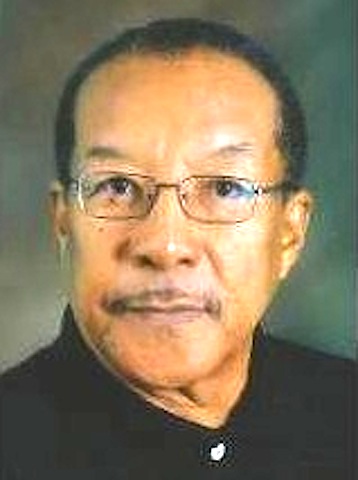MILLS: Has the West Indies been smart in its politics and development?
By Oliver Mills

West Indians are imported people with an imported culture and institutions. Some of the countries comprising the West Indies, now the Caribbean, were colonies of conquest, while others were colonies of settlement.
The settlers brought their institutions and culture to the region, and in the colonies of conquest, the institutions were imposed. The point is that the West Indies have always depended on the countries that colonised them, as it does even at present. And although many islands have gained independence, certain sectors of the population still feel they were better off in association with Britain.
Many citizens of the West Indies still feel that if they do not get an education from British institutions they have not really been educated, despite being educated at local tertiary and other institutions. The dependence on, and psychological feeling that the best is always from the country it has been historically connected to, is still grounded in the psyche of the West Indian. Can this attitude be regarded as being smart? What about prospects for decolonisation?
Throughout its history of British influence, and even presently, West Indian economies have been tied to that of Britain who gave them special concessions on many of their products. It is only because of globalisation and competitiveness, that changes were made. But even presently the West Indies still receives British aid in numerous forms. Directly and indirectly through Caribbean institutions. Has the West Indies then been smart in its development, or is it that the nature of their continuing relationship with Britain through the Commonwealth, has influenced its development initiatives, providing moral support, consultancy advice, and educational opportunities?
Take for example the idea of industrialisation by invitation, a process copied from Puerto Rico, where potential investors were promised certain benefits if they invested in the Caribbean. It was thought this would bring quick development to West Indian economies, but it was later found that this initiative was lopsided, and produced growth, but little development, apart from particular elites who were the beneficiaries. This economic strategy was built around the trickling down of benefits, which left the majority on the fringes of the society. Was this a smart approach to development by the West Indies?
It should also be noted that it was Britain that supported the establishment of the University of the West Indies, initially a College of London University, which has provided, and is providing educational opportunities that continue to be critical to Caribbean development. Is this evidence of the West Indies being positively smart in its development choices?
The 1970’s saw many West Indian territories being influenced by socialist philosophy, another imported ideology. But when it did not deliver because of internal and external opposition, it was soon dispensed with, although elements of it can still be detected in the manifestoes of many political parties. Socialism was seen as a strategy that would use free education and health care, as a means of reaching society’s underprivileged, and fostering equality and justice. Could this be regarded as a smart development strategy?
In the realm of politics, the West Indian elite retained the institutions the colonial system bequeathed to it. There was no critique as to whether it suited the new era of independence and nationhood, with indigenous institutions relevant to the objectives of the new West Indian states. What existed was allowed to continue along with its imperfections.
One Caribbean political scientist argued that in the Old Representative System, those with social and economic power also held constitutional authority over affairs, and this framework became a factor in the independence era as well. The existing structure of government was therefore preserved. Nothing changed significantly on the road to independence. This formed the basis of the dilemma between the desire for change, and the necessity for continuity. Any changes that have occurred have been at the margins.
Politics in the West Indies has only tenuously been connected to development, which has meant encouraging foreign investment, little of which filters down to the majority population. The spin-offs in significant amounts have not been realised. If anything, politics in the West Indies has taken second place to development, since development, and the capital and financial resources it brings determine the nature of politics. Many West Indian governments seem to be beholden to foreign investment that often influences their policy initiatives. They display soft power to investors because they want their goods.
Could it then be said that the West Indies has been smart in its politics and development strategies overall?
About the writer: Oliver Mills is a former lecturer in education at the University of the West Indies Mona Campus. He holds an M.Ed degree from Dalhousie University in Canada, an MA from the University of London and a post-graduate diploma in HRM and Training, University of Leicester. He is a past Permanent Secretary in Education with the government of the Turks and Caicos Islands





